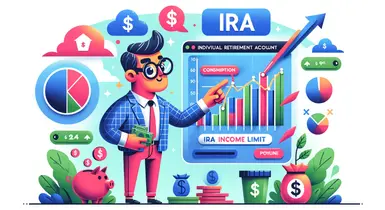Investment Properties: Pros, Cons and Types
Contents

Investment property is any real estate purchased primarily to generate income, enhance reputation, or both. These can be residential, commercial, or industrial. The only thing all investment properties have in common is that they are not intended for the owner’s personal use and are leased to third parties instead. Investors can then profit from rental income and property value appreciation.
How does investment property work? What are the types of investment properties? What are the benefits of this asset type? In this guide, we’ll discuss the basics of real estate investing, the meaning of investment property and its types, and tips on dealing with immovable assets.
Types of Investment Properties

What is an investment property? In basic terms, investment properties are assets acquired and managed with the intention of earning profit through resale or lease. Interestingly, the term encompasses not only brick-and-mortar buildings, but also artwork, bonds, stocks, mutual funds, oil, gas, precious metals, etc.
Historically, real investment property was only available to those with a substantial starting capital, as the real estate market is notoriously hard to access. This led to the emergence of various trusts focused specifically on property for investment.
Now, let’s explore some examples of what an investment property can look like.
Residential Properties
Residential real estate units are among the most sought-after investment properties due to their relative affordability. They include:
- Single-family homes: As the name suggests, these are houses designed for a single family. As a bonus, such properties are easy to manage.
- Multi-family dwellings: Duplexes, triplexes, quadplexes, and apartment buildings that can accommodate several households within a single structure. These properties have higher rental income potential, but may entail more complex management responsibilities.
- Condominiums and Townhouses: Condos are individually owned units within a larger complex, while townhouses are multi-level homes attached to neighboring units. Both are great for rental income generation due to shared amenities and communal maintenance.
Commercial Properties
Typically used for business operations, this type of immovable asset is considered a higher-echelon investment due to the generous income it offers.
- Office properties include everything from small private suites to high-rise buildings. Considering the sheer range of budgets and needs modern companies have, you can find all sorts of properties in this category.
- Retail spaces include shopping centers, strip malls, standalone retail stores, and mixed-use buildings with retail components. The ROI and overall success of this type of investment depends on the property's location and foot traffic.
- Industrial properties are warehouses, distribution centers, manufacturing facilities, and industrial parks. Logistics, e-commerce, and supply chain management drive demand for this category.
- Mixed-use developments are multipurpose spaces with commercial, residential, and retail areas housed in a single complex. These properties offer highly diversified income from a wide range of tenants and consumers.
Vacation Rentals
This type of property as an investment has surged in popularity with the rise of online platforms like Airbnb and VRBO, designed to allow real estate owners to capitalize on short-term rental demand in tourist destinations. Investors can purchase homes in vacation hotspots and rent them out to travelers seeking short-term accommodations.
Distressed Properties
At a glance, this type of real estate is far from investment-friendly. However, it’s a holy grail for the investors willing and equipped to renovate these undervalued properties. It’s a short-term investment that can result in a significant gain. Still, this dynamic approach requires you to be market savvy, carefully plan your operations, have renovation skills, and be great at risk management.
Land
Investing in land usually means acquiring vacant or undeveloped plots with the potential for future appreciation or development. It could be land earmarked for residential development or designated for commercial use, as well as farmland and rural properties suitable for agricultural activities, such as crop cultivation, livestock farming, or other agribusiness ventures.
Advantages of Investment Properties

Now that you know what is considered an investment property, let’s see what this asset class has to offer.
Steady Income Stream
Lease is by far the most popular goal for property investors. A real estate unit in a good location can be easily turned into a reliable source of income, generating cash on a monthly basis. Not only will it repay mortgage and maintenance costs, but also provide a consistent ROI.
Appreciation Profit
Statistically speaking, real estate prices tend to rise over time, making immovable properties a secure and profitable long-term investment. This means you can take time to build equity and sell your property when market prices are at their peak to get a huge ROI.
Tax Perks
Investment property ownership also comes with tax benefits, specifically deductions for mortgage interest, property taxes, insurance, depreciation, and expenses related to property maintenance and management.
Portfolio Diversification
As usual, spreading risks across different asset classes is a good way to mitigate or minimize the impact of market fluctuations. Considering the historical data on real estate prices, this investment type is among the better ones on the market.
Hedge Against Inflation
Inflation is hard to beat, yet property values and rental rates tend to catch up with increasing living costs. In other words, investment property retains its purchasing power and can offset inflation for you.
Challenges of Investment Properties

Despite the amazing potential to be found here, investment in property is not without its share of risks and challenges.
Ownership Responsibilities
One way or another, it will take time and effort to manage your rental assets, especially if you choose to do it on your own. In the meantime, delegating the task to a managing company will eat into your profit.
Maintenance and Repair Costs
Regular maintenance and timely repairs are necessary to keep your rental properties attractive for tenants. To reduce financial strain and avert unforeseen expenses that might damage your budget, you should always plan for such costs and have a dedicated financial reserve.
Liquidity Issues
The liquidity of investment properties is lower than that of asset classes like securities. You can’t convert real estate back into cash as quickly as stocks. So, with property investment, you should be ready to lock up money for longer.
Tips for Investing in Real Estate

At this point, we’ve hopefully answered the question, “What are investment properties?” Next, let’s see what you need to successfully invest in real estate. First of all, you’ll need a good strategy. Though there is no one-size-fits-all solution, here are a few tips that will help you move in the right direction.
- Be clear about your investment goals: Determine what you want to achieve to focus on the options and approaches that align with your objectives and expectations.
- Assess your finances: Thoroughly analyze your financial standing and capabilities to be clear about how much you can invest in property.
- Research the market: Explore different locations, property types, and market trends to find areas with strong potential for rental demand, appreciation, and long-term growth.
- Outline your investment tactic: Work out several potentially suitable strategies. Weigh all the pros and cons of each approach to pick the one that will best match your goals.
- Secure financing: If you don’t have enough cash to purchase a property outright, explore other financing options to fund your investment. Compare the terms and rates offered by different mortgage lenders to spot the most favorable conditions.
- Find the right property: Estimate properties based on factors like location, price, condition, rental potential, and projected ROI.
Final Thought
Investment properties are powerful vehicles for generating steady income and building wealth. When properly managed, most properties have the potential to create lasting value for enterprising investors.




